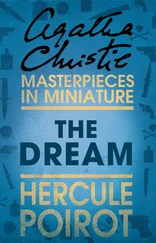Agatha Christie - The Labours of Hercules
Здесь есть возможность читать онлайн «Agatha Christie - The Labours of Hercules» весь текст электронной книги совершенно бесплатно (целиком полную версию без сокращений). В некоторых случаях можно слушать аудио, скачать через торрент в формате fb2 и присутствует краткое содержание. Жанр: Классический детектив, на английском языке. Описание произведения, (предисловие) а так же отзывы посетителей доступны на портале библиотеки ЛибКат.
- Название:The Labours of Hercules
- Автор:
- Жанр:
- Год:неизвестен
- ISBN:нет данных
- Рейтинг книги:4.33 / 5. Голосов: 3
-
Избранное:Добавить в избранное
- Отзывы:
-
Ваша оценка:
- 80
- 1
- 2
- 3
- 4
- 5
The Labours of Hercules: краткое содержание, описание и аннотация
Предлагаем к чтению аннотацию, описание, краткое содержание или предисловие (зависит от того, что написал сам автор книги «The Labours of Hercules»). Если вы не нашли необходимую информацию о книге — напишите в комментариях, мы постараемся отыскать её.
The Labours of Hercules — читать онлайн бесплатно полную книгу (весь текст) целиком
Ниже представлен текст книги, разбитый по страницам. Система сохранения места последней прочитанной страницы, позволяет с удобством читать онлайн бесплатно книгу «The Labours of Hercules», без необходимости каждый раз заново искать на чём Вы остановились. Поставьте закладку, и сможете в любой момент перейти на страницу, на которой закончили чтение.
Интервал:
Закладка:
It all sounded well – and meant nothing. Hercule Poirot felt that familiar aching of the jaw when one longs to yawn and politeness forbids. He had felt the same sometimes when reading the parliamentary debates. But on those occasions there had been no need to restrain his yawns.
He steeled himself to endure patiently. He felt, at the same time, a sympathy for Sir George Conway. The man obviously wanted to tell him something – and as obviously had lost the art of simple narration. Words had become to him a means of obscuring facts – not of revealing them. He was an adept in the art of the useful phrase – that is to say the phrase that falls soothingly on the ear and is quite empty of meaning.
The words rolled on – poor Sir George became quite red in the face. He shot a desperate glance at the other man sitting at the head of the table, and that other man responded.
Edward Ferrier said: "All right, George. I'll tell him."
Hercule Poirot shifted his gaze from the Home Secretary to the Prime Minister. He felt a keen interest in Edward Ferrier – an interest aroused by a chance phrase from an old man of eighty-two. Professor Fergus MacLeod, after disposing of a chemical difficulty in the conviction of a murderer, had touched for a moment on politics. On the retirement of the famous and beloved John Hammett (now Lord Cornworthy) his son-in-law, Edward Ferrier, had been asked to form a Cabinet. As politicians go he was a young man – under fifty. Professor MacLeod had said: "Ferrier was once one of my students. He's a sound man."
That was all, but to Hercule Poirot it represented a good deal. If MacLeod called a man sound it was a testimonial to character compared with which no popular or press enthusiasm counted at all.
It coincided, it was true, with the popular estimate. Edward Ferrier was considered sound – just that – not brilliant, not great, not a particularly eloquent orator, not a man of deep learning. He was a sound man – a man bred in the tradition – a man who had married John Hammett's daughter – who had been John Hammett's right hand man and who could be trusted to carry on the government of the country in the John Hammett tradition.
For John Hammett was particularly dear to the people and Press of England. He represented every quality which was dear to Englishmen. People said of him: "One does feel that Hammett's honest." Anecdotes were told of his simple home life, of his fondness for gardening. Corresponding to Baldwin 's pipe and Chamberlain's umbrella, there was John Hammett's raincoat. He always carried it – a weatherworn garment. It stood as a symbol – of the English climate, of the prudent forethought of the English race, of their attachment to old possessions. Moreover, in his bluff British way, John Hammett was an orator. His speeches, quietly and earnestly delivered, contained those simple sentimental cliches which are so deeply rooted in the English heart. Foreigners sometimes criticise them as being both hypocritical and unbearably noble. John Hammett did not in the least mind being noble – in a sporting, public school, deprecating fashion.
Moreover, he was a man of fine presence, tall, upstanding, with fair colouring and very bright blue eyes. His mother had been a Dane and he himself had been for many years First Lord of the Admiralty, which gave rise to his nickname of "the Viking". When at last ill-health forced him to give up the reins of office, deep uneasiness was felt. Who would succeed him? The brilliant Lord Charles Delafield? (Too brilliant – England didn't need brilliance.) Evan Whittler? (Clever – but perhaps a little unscrupulous.) John Potter? (The sort of man who might fancy himself as Dictator – and we didn't want any dictators in this country, thank you very much.) So a sigh of relief went up when the quiet Edward Ferrier assumed office. Ferrier was all right. He had been trained by the Old Man, he had married the Old Man's daughter. In the classic British phrase, Ferrier would "carry on".
Hercule Poirot studied the quiet dark-faced man with the low pleasant voice. Lean and dark and tired-looking.
Edward Ferrier was saying: "Perhaps, M. Poirot, you are acquainted with a weekly periodical called the X-ray News?"
"I have glanced at it," admitted Poirot, blushing slightly.
The Prime Minister said: "Then you know more or less of what it consists. Semi-libellous matter. Snappy paragraphs hinting at sensational secret history. Some of them true, some of them harmless – but all served up in a spicy manner. Occasionally -"
He paused and then said, his voice altering a little: "Occasionally something more."
Hercule Poirot did not speak.
Ferrier went on: "For two weeks now there have been hints of impending disclosures of a first-class scandal in 'the highest political circles'. 'Astonishing revelations of corruption and jobbery.'"
Hercule Poirot said, shrugging his shoulders: "A common trick. When the actual revelations come they usually disappoint the cravers after sensation badly."
Ferrier said dryly: "These will not disappoint them."
Hercule Poirot asked: "You know then, what these revelations are going to be?"
"With a fair amount of accuracy."
Edward Ferrier paused a minute, then he began speaking. Carefully, methodically, he outlined the story.
It was not an edifying story. Accusations of shameless chicanery, of share juggling, of a gross misuse of Party Funds. The charges were levelled against the late Prime Minister, John Hammett. They showed him to be a dishonest rascal, a gigantic confidence trickster, who had used his position to amass for himself a vast private fortune.
The Prime Minister's quiet voice stopped at last.
The Home Secretary groaned. He spluttered out: "It's monstrous – monstrous! This fellow, Perry, who edits the rag, ought to be shot!"
Hercule Poirot said: "These so-called revelations are to appear in the X-ray News?"
"Yes."
"What steps do you propose to take about them?"
Ferrier said slowly: "They constitute a private attack on John Hammett. It is open to him to sue the paper for libel."
"Will he do that?"
"No."
"Why not?"
Ferrier said: "It is probable that there is nothing the X-ray News would like better. The publicity given them would be enormous. Their defence would be fair comment and that the statements complained of were true. The whole business would be exhaustively held up to view in a blaze of limelight."
"Still, if the case went against them, the damages would be extremely heavy."
Ferrier said slowly: "It might not go against them."
"Why?"
Sir George said primly, "I really think that -"
But Edward Ferrier was already speaking.
"Because what they intend to print is – the truth."
A groan burst from Sir George Conway, outraged at such un-Parliamentary frankness. He cried out: "Edward, my dear fellow. We don't admit, surely -"
The ghost of a smile passed over Edward Ferrier's tired face. He said: "Unfortunately, George, there are times when the stark truth has got to be told. This is one of them."
Sir George exclaimed: "You understand, M. Poirot, all this is strictly in confidence. Not one word -"
Ferrier interrupted him. He said: "M. Poirot understands that." He went on slowly, "What he may not understand is this: the whole future of the People's Party is at stake. John Hammett, M. Poirot, was the People's Party. He stood for what it represents to the people of England – he stood for Decency and Honesty. No one has ever thought us brilliant. We have muddled and blundered. But we have stood for the tradition of doing one's best – and we have stood, too, for fundamental honesty. Our disaster is this – that the man who was our figure-head, the Honest Man of the People, par excellence – turns out to have been one of the worst crooks of this generation."
Читать дальшеИнтервал:
Закладка:
Похожие книги на «The Labours of Hercules»
Представляем Вашему вниманию похожие книги на «The Labours of Hercules» списком для выбора. Мы отобрали схожую по названию и смыслу литературу в надежде предоставить читателям больше вариантов отыскать новые, интересные, ещё непрочитанные произведения.
Обсуждение, отзывы о книге «The Labours of Hercules» и просто собственные мнения читателей. Оставьте ваши комментарии, напишите, что Вы думаете о произведении, его смысле или главных героях. Укажите что конкретно понравилось, а что нет, и почему Вы так считаете.












